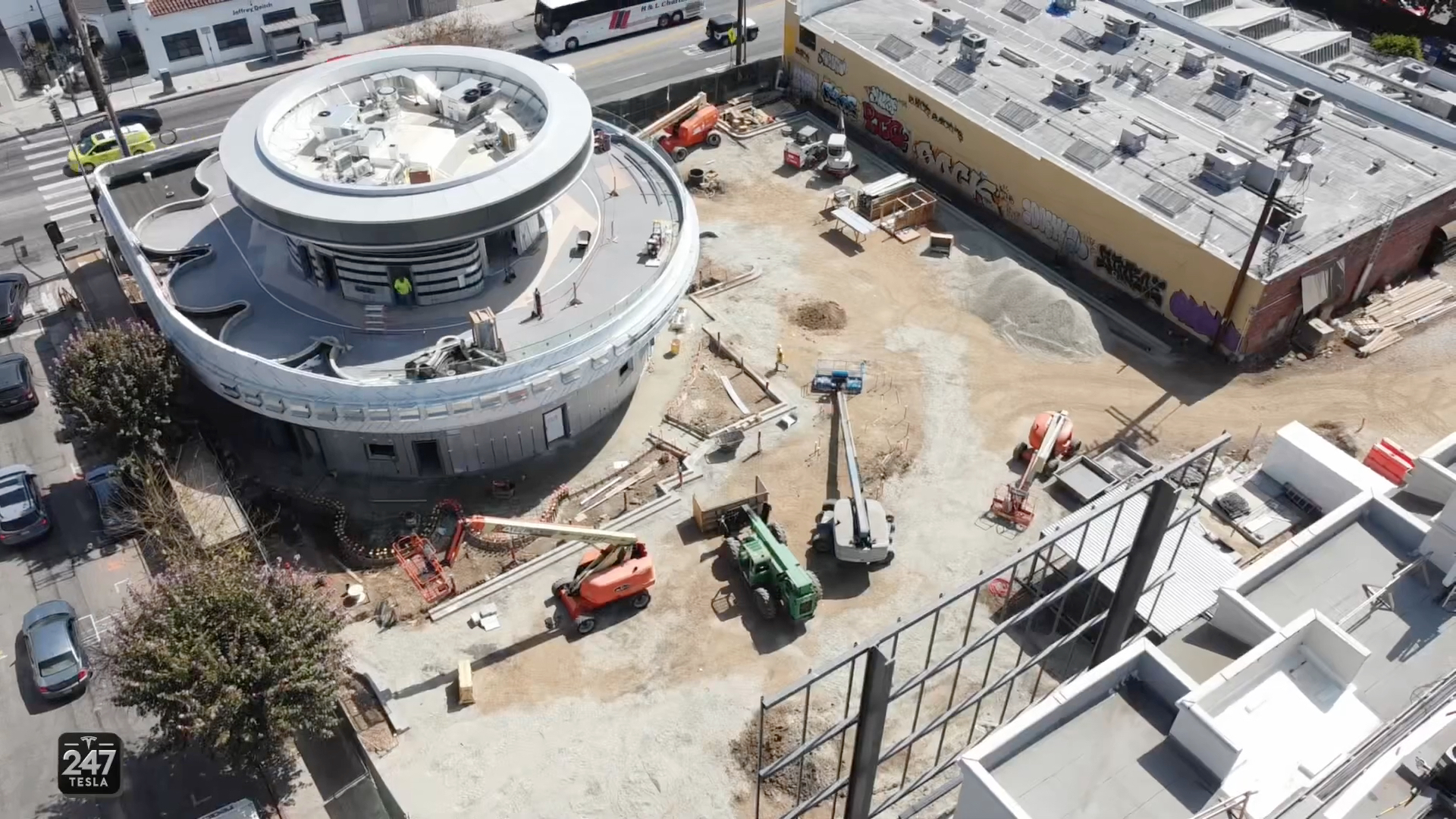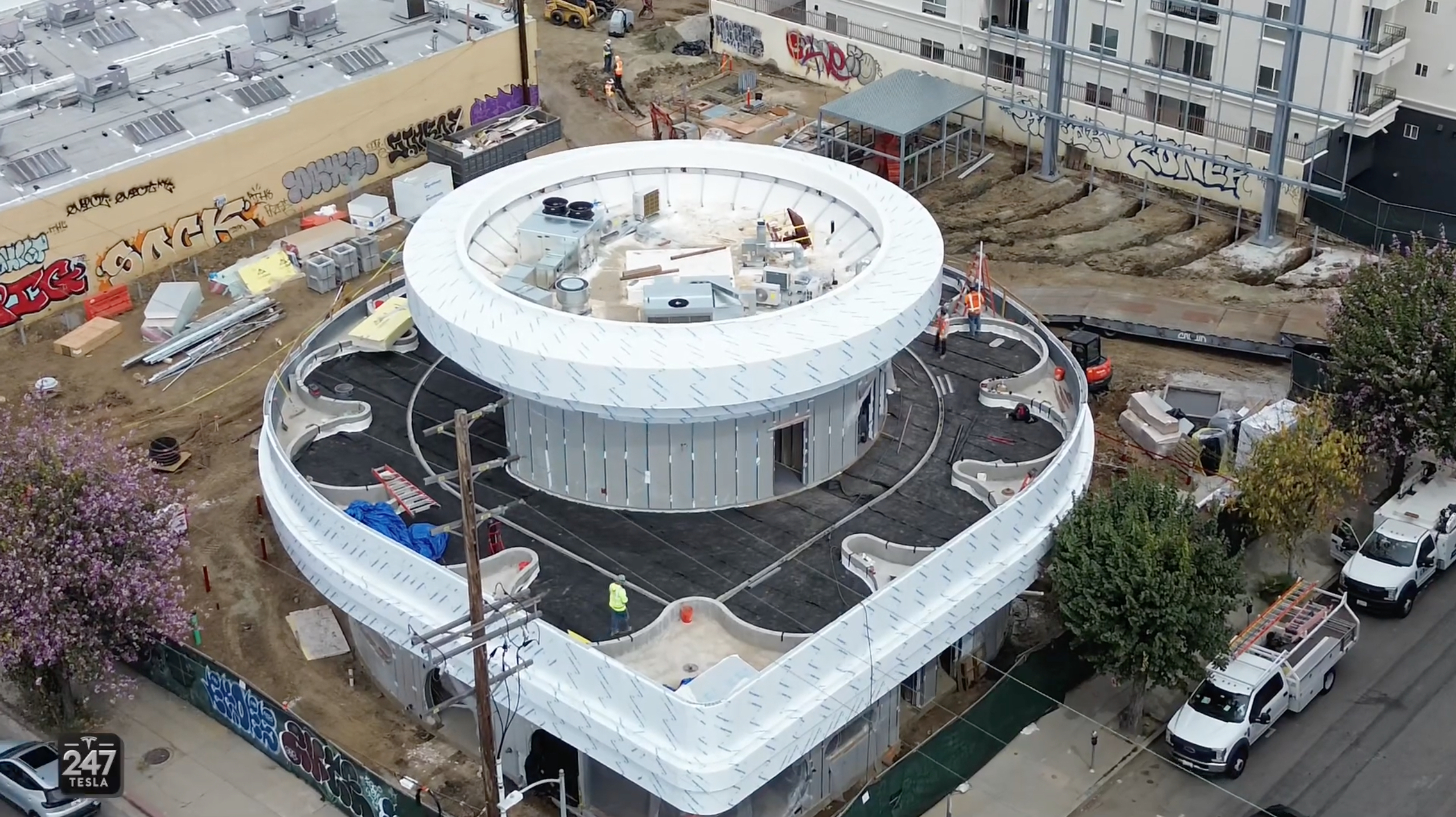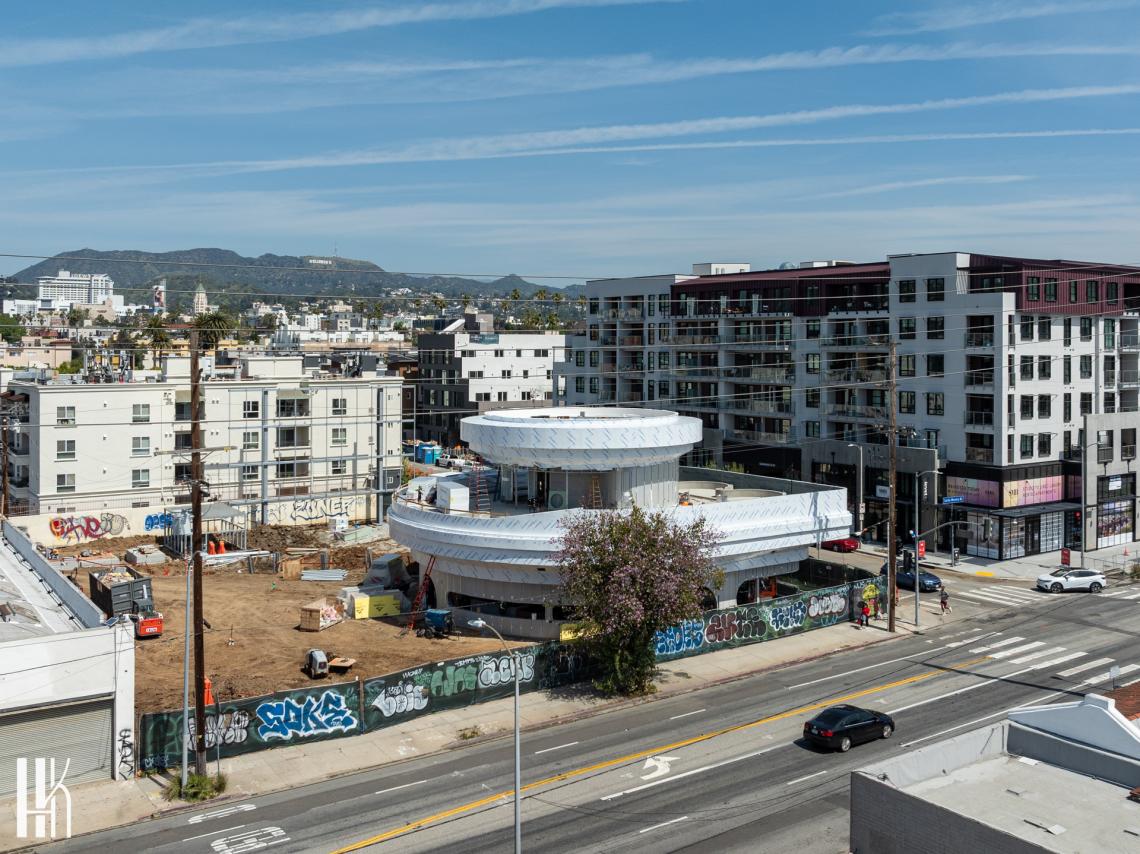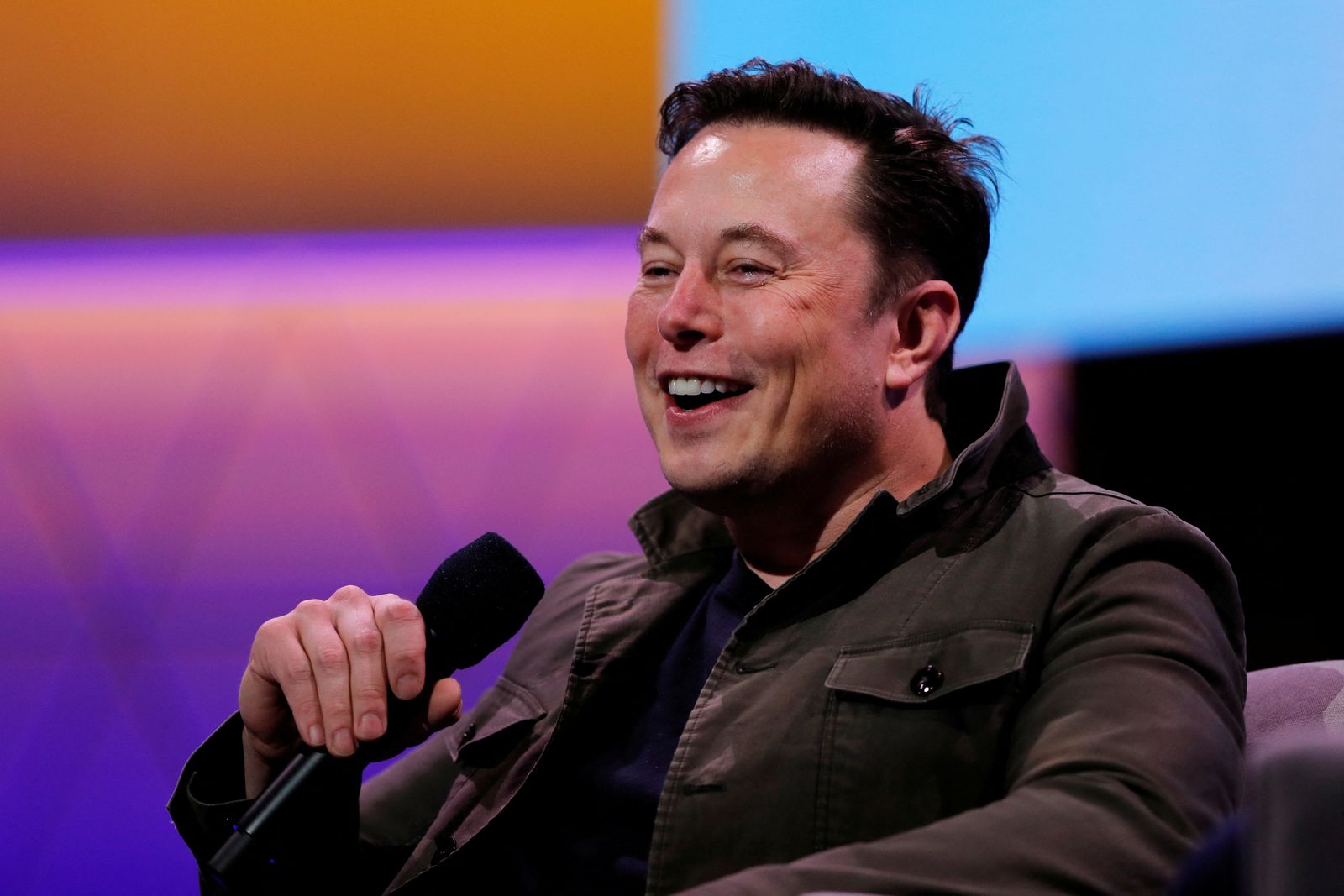In a saga stretching over seven years, Elon Musk’s ambitious dream of combining his love for vintage Americana with the Tesla brand has officially hit the brakes.
Once hailed as a bold and quirky project—a fusion of drive-in nostalgia, roller-skating servers, and high-speed charging for electric vehicles—the vision of a Tesla diner has become yet another symbol of Musk’s overreach. The $150,000,000 plan now appears to be nothing more than a flashy idea gathering dust.
Back in January 2018, Musk took to Twitter—now rebranded as X—to announce his vision: “an old school drive-in, roller skates & rock restaurant” stationed at a Tesla Supercharger in Los Angeles. It was the kind of eccentric, headline-grabbing idea Musk was famous for.
At the time, the idea seemed destined for success. With Tesla riding high in public favor, and Musk’s reputation still largely intact, the project felt like a natural extension of Tesla’s disruptive innovation.

Fast-forward to August 2023. Musk once again returned to X to double down on the promise, declaring the “Tesla futuristic diner” would be open by the end of the year. Now, in April 2025, nearly two years since that announcement and over five years since the original tweet, the structure remains unfinished. No opening date has been set. The project, quite literally, lies in limbo.
But it’s not just the restaurant that’s suffering. In the time since the original idea was floated, Musk’s public image has taken repeated hits. Though still the richest man in the world as of April 2025, his wealth and influence seem shakier than ever.
Tesla stock has plummeted over 45% year-to-date, with shareholders openly worrying that Musk spends more time walking the halls of Washington, D.C. than managing the company he once claimed would revolutionize the world.
This political detour—exemplified by the formation of the Department of Government Efficiency (DOGE)—has only fueled unrest. Massive layoffs in government departments under Musk’s DOGE oversight have triggered protests across the country.

Meanwhile, Tesla dealerships have become the site of loud demonstrations, and once-loyal customers are reportedly returning their vehicles. Global sales are declining. Musk’s antics online, combined with his offline actions, have created a credibility crisis.
Amid all of this chaos, the Tesla restaurant—once a quirky side project—has become a glaring metaphor for the broader Musk empire: ambitious, attention-grabbing, and now stuck in limbo.
Despite the delays, Tesla did make attempts to get the diner off the ground. According to The New York Times, the company reached out to multiple well-known restaurant groups in an attempt to outsource operations. But the rejections came fast and firm.
Lucques Group, a respected name in the LA restaurant scene, declined the offer, citing the absence of a liquor license among their concerns. Wolfgang Puck Catering passed as well. And although neither Shake Shack co-founder Danny Meyer nor Paul Kahan of One Off Hospitality in Chicago were approached, both expressed no interest in being affiliated with the venture.

Even Chef David Chang, one of America’s most celebrated culinary voices, dismissed the idea outright—citing his general disdain for the burger-grilling world that Tesla’s diner seemed to embrace. Chang’s refusal to engage is just one example of how high-profile chefs have been hesitant to associate themselves with the Musk brand.
Those who have publicly voiced support for the project haven’t fared well either. Chef Walter Manzke of République found himself in the Reddit crosshairs after expressing his support in a Times article. His restaurant, once a staple of fine dining in Los Angeles, faced waves of online backlash.
Meanwhile, embattled Michelin-starred chef Matt Baker has suffered similar consequences. Baker, who is already facing mounting legal and financial issues, drew even more fire after publicly aligning himself with Musk and inviting the billionaire to dine at his D.C. restaurant Gravitas.
Despite all the red flags, it appears that Musk has finally found a culinary partner willing to step into the hot seat: Eric Greenspan. Known for his cheesy creations and his work in the world of ghost kitchens, Greenspan was announced as the head chef of the Tesla restaurant by Sawyer Merritt on March 26.
But even this apparent win might be short-lived. On April 6, PopUp Bagels deleted an Instagram post announcing a collaboration with Greenspan’s cheese brand, New School American.

A Threads post documenting the deletion has sparked speculation that Greenspan may be facing early backlash for his Tesla ties. The internet, always quick to pass judgment, seems to have already formed an opinion.
It raises the question: what does it really mean to associate with Elon Musk in 2025? Once, such a connection might have been a badge of honor—a sign of bold innovation and forward-thinking. Now, for many in the culinary world and beyond, it’s a potential PR nightmare.
The collapse—or at the very least, indefinite postponement—of the Tesla restaurant is just the latest example of Musk’s increasingly erratic portfolio. While once seen as a genius-entrepreneur juggling multiple ventures, from space exploration to neurotechnology, the perception is shifting.
Critics now see a man spreading himself too thin, prioritizing vanity projects and political entanglements over delivering on promises.
And those promises are piling up. From the still-delayed Cybertruck rollout to the crumbling ambitions of Neuralink, the gaps between Musk’s words and actions are growing too large to ignore. The diner, originally envisioned as a nostalgic blend of 1950s charm and 21st-century tech, now feels more like a monument to unfulfilled hype.

What was supposed to be a fun, quirky side attraction—a way to turn Supercharger pit stops into memorable dining experiences—has become emblematic of Musk’s fallibility. Instead of burgers and fries served on roller skates, we’re left with a construction site, a revolving door of rejected chefs, and a $150,000,000 dream that seems further from reality than ever.
For those who believed in Musk’s vision of blending culture, convenience, and technology, the disappointment is palpable. The Tesla restaurant could have been a unique fixture in Los Angeles—a cultural hub where electric cars met comfort food, where innovation met entertainment. But today, it stands as an unfinished ghost of what could’ve been, a project buried under the weight of a CEO’s distractions and a public no longer so easily charmed.
As of now, there is no word on when—or if—the restaurant will ever open. No updates. No photos. No buzz. Just a silent construction site, fading headlines, and an idea that once captivated the public now reduced to little more than a footnote in the saga of Musk’s empire.
And in that silence, the message rings clear: even for the richest man in the world, not every dream becomes reality.